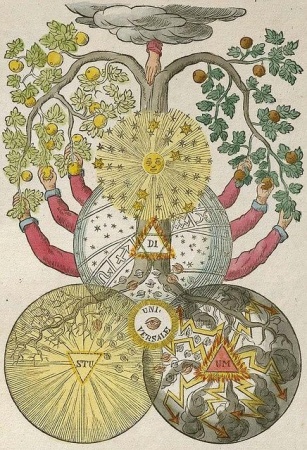Laura Impert LCSW
Psychotherapist
- lauraimpert@gmail.com
- Tel. 212-362-6170
- 200 W. 90th St, #1G, NYC 10024

As a relational psychotherapist and psychoanalyst, my approach is to fully collaborate with the patient. It’s difficult to come to therapy and expose one’s struggles to a stranger. With trust and time, therapy can become a powerful tool to understand the arc of one’s life. Therapy helps to link the threads of the past to one’s life in the present. Often people find that this linking becomes a tremendously valuable experience, providing insight into their innermost selves. Yet most patients come to therapy seeking help with concrete, real life problems. My work strives to use an integrative approach, also recruiting cognitive and behavioral tools to shift unhelpful responses in difficult situations and to find new strategies that are more effective in real life situations. My observation is that patients will develop more curiosity and self-reflection in the process, traits to be cherished in one’s life.
I like to work with people grappling with transitions. I’ve had extensive experience with students and young adults seeking help with their developmental struggles around identity. Transitions are everywhere in life; I’ve also seen patients struggling with issues around parenthood, patients in the process of ending partnerships, and finally patients facing the losses that are part of our lifespan. My work with artists whose stumbling blocks inhibit their creative work is another area of great interest to me. Finally, I’ve researched the plight of the isolated patient when longings for connection and intimacy collide with the comfort of self-sufficiency. Finally, throughout my career I’ve worked with patients around gender issues, LGBTQ+ issues, and the difficulties around coming out. I’ve worked with patients in the polyamory community and the kink community.
I’ve published in professional journals on topics, including intimacy issues, mourning, and nostalgia.
PROFESSIONAL BACKGROUND
I graduated from Hampshire College in Amherst, Massachusetts in 1975 and received my Master’s degree at Smith College School for Social Work in 1981. After working in a variety of settings in community mental health, I graduated as a psychoanalyst at The Institute of Contemporary Psychotherapy in New York City in1995, an intensive program of advanced practice in psychotherapy with adults. I opened my private practice in Manhattan seeing primarily adults and students in 1986. I’ve worked as a staff clinician in college counseling at Sarah Lawrence College. I’ve also done further training in substance abuse and addictions at the William Alanson White Institute in NYC. I’ve incorporated the use of short term approaches, such as cognitive behavioral therapy (CBT) when needed.
I’ve published in the field on several clinical topics: mourning, grief and nostalgia. Additionally, I’ve published on the plight of the isolated patient whose longings for connection and intimacy collide with the comfort of self-sufficiency. I have extensive experience working on struggles around intimacy issues, sexuality and inhibited emotional expression. Similarly my work with artists whose stumbling blocks inhibit their creative work is another area of great interest to me. I also have been trained in working with addiction disorders.
I’m involved in the community of psychoanalytically oriented psychotherapists in the New York city area where I currently supervise therapists in training at The Institute for Contemporary Psychotherapy in NYC as well as on a private basis.
PUBLICATIONS
Impert, L. (1999). The body held hostage: The paradox of self- sufficiency. Contemporary Psychoanalysis, 35, 647-671.
View online »
Impert, L.& Rubin, M. (2011). The Mother at the glen: The relationship between mourning and nostalgia. Psychoanalytic Dialogues, 21: 691-706.
View online »
Impert, L.& Rubin, M. (2011). Revitalizing the self through mourning: Reply to commentaries. Psychoanalytic Dialogues: 21: 736-741.
View online »
PROFESSIONAL AFFILIATIONS
